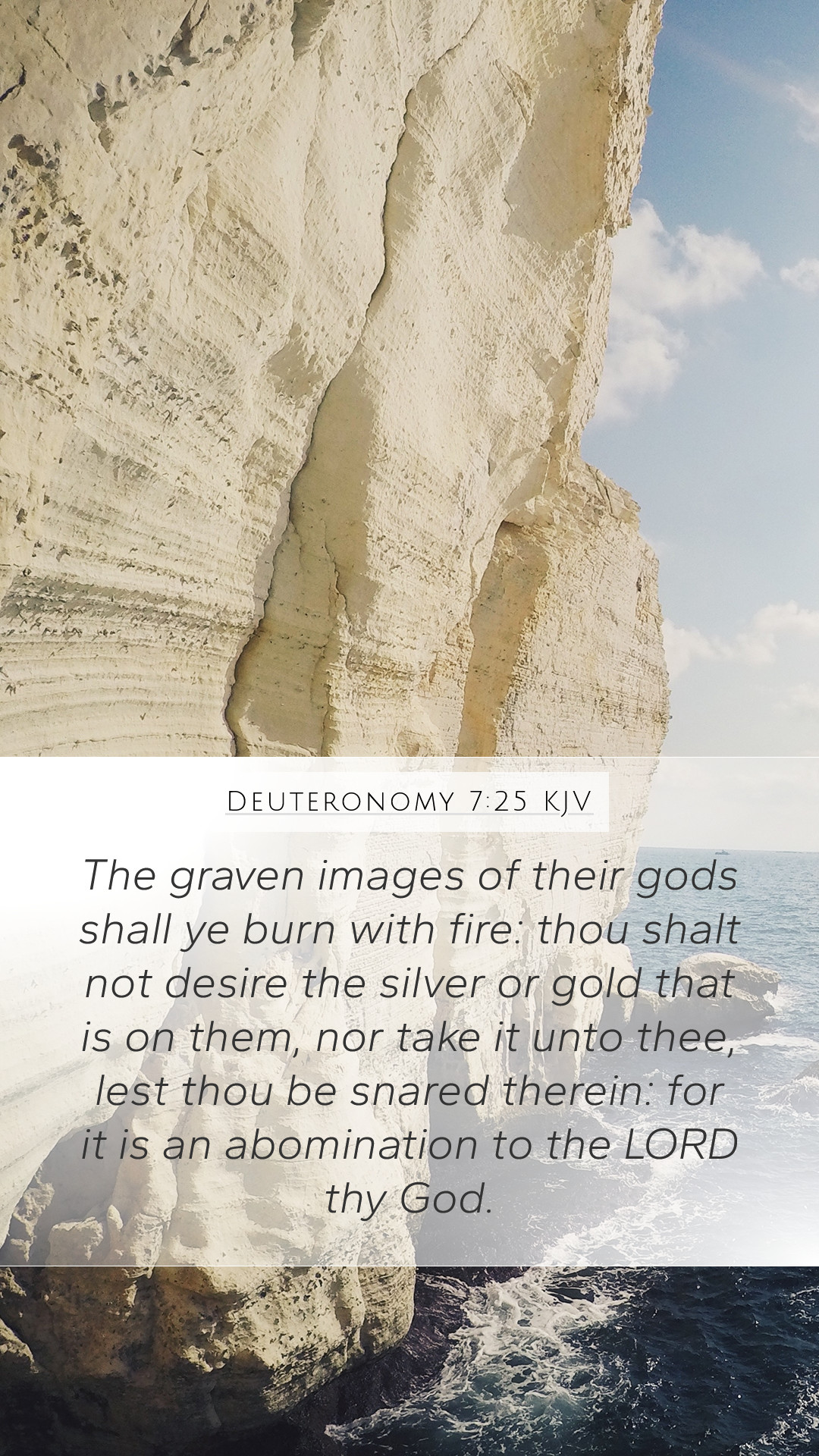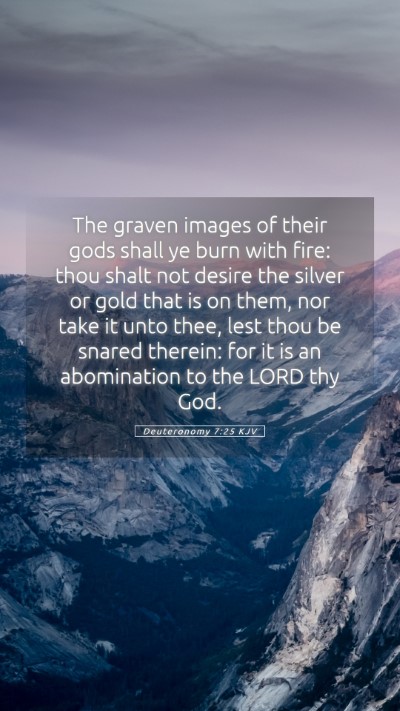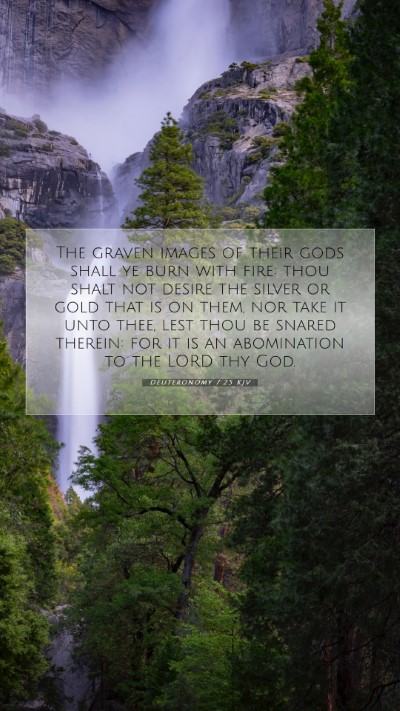Understanding Deuteronomy 7:25
Verse: “The graven images of their gods shall ye burn with fire: thou shalt not desire the silver or gold that is on them, nor take it unto thee, lest thou be snared therein: for it is an abomination to the LORD thy God.” (Deuteronomy 7:25)
Overview of the Verse
This verse is part of Moses' farewell addresses to the Israelites as they prepare to enter the Promised Land. It provides instructions on the proper response to the idols and false gods of the nations surrounding them. The command to destroy graven images underscores the totality of Israel's commitment to God and the importance of avoiding idolatry.
Bible Verse Interpretations
The verse can be understood through several theological and practical lenses as noted in public domain commentaries:
-
Matthew Henry's Commentary:
Henry emphasizes the significance of various forms of idolatry that can lead to spiritual decline. He notes that the Israelites are warned to be vigilant against external influences that could corrupt their worship of God. This verse reflects a broader theme of purity in worship and dedication to the one true God.
-
Albert Barnes' Notes:
Barnes focuses on the idea that the desire for material wealth, represented by the silver and gold associated with idolatrous practices, can lead individuals away from God. He advises that possession or even desire for these materials may ensnare one's heart, drawing them into disobedience.
-
Adam Clarke's Commentary:
Clarke elaborates on the reasons for the destruction of idol images, iterating that they serve no purpose and provoke God's anger. He draws attention to the importance of not only physical removal of idols but also the rejection of the ideology and emotions attached to them that lead to a relationship with false gods.
Biblical Exegesis and Application
This verse serves multiple purposes within the scope of Biblical interpretation and practical application:
-
Idolatry and Worship:
It offers a stern warning against idolatry, teaching that any form of devotion to false gods can corrupt one's relationship with God. The burning of idols signifies a complete rejection of pagan practices.
-
Materialism:
The verse touches on the relevance of material possessions, urging believers to reconsider the importance placed on worldly wealth, which can lead to spiritual downfall.
-
Community Ethics:
As part of communal ethics, this passage stresses collective adherence to divine commandments and the impact of individual actions on the greater community of faith.
Significance of this Verse in the Context of Scripture
Deuteronomy 7:25 offers a glimpse into the broader narrative of God’s covenant with Israel, which is consistently centered around fidelity to God and the avoidance of temptations posed by surrounding nations. The implications of this command extend beyond its immediate context:
- Historical Influence: The ongoing struggle against various forms of idolatry is a recurring theme throughout the Old and New Testaments, emphasizing the need for purity in worship.
- Theological Implications: This verse informs our understanding of God’s nature as one who is jealous for the worship of His people and sufficient in Himself apart from created things.
- Contemporary Relevance: Modern Christians are called to identify and uproot any forms of idolatry in their lives—including materialism, priorities, and loyalties that distract from their devotion to God.
- Spiritual Vigilance: The command not to desire or take likely reflects an attitude of vigilance—encouraging believers to actively guard their hearts against hidden snares that lead away from God.
Related Bible Cross References
- Exodus 20:4-5: “Thou shalt not make unto thee any graven image...” - This establishes God's prohibition against idolatry.
- Leviticus 19:4: “Turn ye not unto idols, nor make to yourselves molten gods...” - Further reinforces this principle.
- 1 Corinthians 10:14: “Wherefore, my dearly beloved, flee from idolatry.” - New Testament exhortation related to Old Testament teachings.
- Romans 12:2: “And be not conformed to this world...” - Calls for transformation and examination of worldly desires.
- Matthew 6:24: “No man can serve two masters...” - Highlights the impossibility of serving both God and materialism.
Conclusion
In summary, Deuteronomy 7:25 is a powerful admonition against idolatry and materialism. It carries a significant warning for biblical believers: while engaging with culture, one must remain steadfast in their loyalty to God. By understanding this verse through thorough Bible verse commentary and scripture analysis, believers can appreciate its implications for both historical and contemporary faith practices. This passage encourages thoughtful reflection and the effort to incorporate its teachings into daily life, providing rich material for bible study groups and personal study alike.


